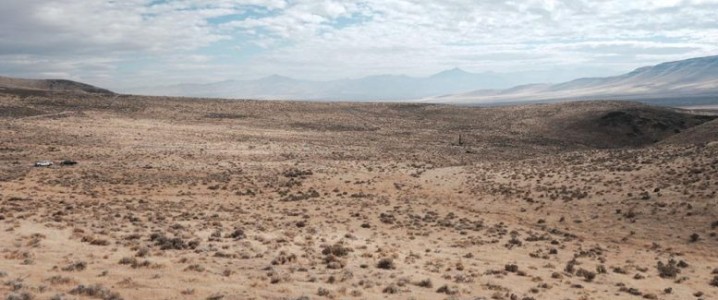Business
Trump Administration Seeks 10% Stake in Thacker Pass Lithium Project

The Trump Administration is pursuing a 10% equity stake in the Thacker Pass lithium project, a significant move aimed at bolstering the United States’ critical minerals supply chain. This initiative reflects a broader strategy to reduce reliance on China for essential materials used in defense, military, and battery technologies. According to sources familiar with the negotiations, this potential investment in Lithium Americas Corp. is part of ongoing discussions regarding a $2.26 billion loan from the U.S. Department of Energy intended for the Thacker Pass project.
Located in Humboldt County, Nevada, the Thacker Pass project is poised to play a crucial role in establishing a domestic battery supply chain. The project aims for mechanical completion by late 2027 and is expected to produce 40,000 tonnes per year of battery-quality lithium carbonate. Once operational, Thacker Pass is projected to significantly increase U.S.-sourced lithium production, potentially boosting output nearly tenfold over current levels.
The administration’s interest in securing a stake follows a broader trend of federal engagement in critical mineral projects. An official from the White House emphasized President Trump’s support for the Thacker Pass initiative, stating, “He wants it to succeed and also be fair to taxpayers.” The official also noted the importance of fiscal responsibility, remarking, “But there’s no such thing as free money.”
In response to the news of the Trump Administration’s interest, shares of Lithium Americas surged by 80% in after-hours trading on Tuesday. This spike mirrors the market reaction seen earlier in the year when MP Materials Corp., a U.S. rare earths miner, announced a public-private partnership with the U.S. Department of Defense. This collaboration aims to develop a complete domestic rare earth magnet supply chain, with the Department of Defense set to become MP Materials’ largest shareholder with a 15% stake.
The shift towards direct federal investment underscores the administration’s urgency in securing a reliable domestic supply of critical minerals. Currently, China dominates the global supply chain for these essential resources, particularly in mineral processing and magnet production. The International Energy Agency (IEA) has warned that the concentration of critical mineral supply in a few countries, especially China, poses risks of market disruptions.
According to the IEA’s annual 2025 report, China accounts for approximately 70% of the market share for 19 out of 20 minerals analyzed. The report highlights concerns over price volatility, with three-quarters of these minerals exhibiting greater fluctuations than oil. The situation is compounded by China’s export controls, which could lead to “painful disruptions” in the market.
While the current market remains well-supplied with critical minerals, the IEA points out that the real issue lies in the concentration of production among a select few producers. By pursuing equity stakes and supporting U.S.-based projects, the Trump Administration aims to mitigate these risks and enhance national security through a more resilient and independent resource supply chain.
The Thacker Pass project represents a pivotal step in this direction, potentially transforming the landscape of U.S. lithium production and positioning the country to compete more effectively in the global market for critical minerals.
-

 Health3 months ago
Health3 months agoNeurologist Warns Excessive Use of Supplements Can Harm Brain
-

 Health3 months ago
Health3 months agoFiona Phillips’ Husband Shares Heartfelt Update on Her Alzheimer’s Journey
-

 Science1 month ago
Science1 month agoBrian Cox Addresses Claims of Alien Probe in 3I/ATLAS Discovery
-

 Science1 month ago
Science1 month agoNASA Investigates Unusual Comet 3I/ATLAS; New Findings Emerge
-

 Science4 weeks ago
Science4 weeks agoScientists Examine 3I/ATLAS: Alien Artifact or Cosmic Oddity?
-

 Entertainment4 months ago
Entertainment4 months agoKerry Katona Discusses Future Baby Plans and Brian McFadden’s Wedding
-

 Science4 weeks ago
Science4 weeks agoNASA Investigates Speedy Object 3I/ATLAS, Sparking Speculation
-

 Entertainment4 months ago
Entertainment4 months agoEmmerdale Faces Tension as Dylan and April’s Lives Hang in the Balance
-

 World3 months ago
World3 months agoCole Palmer’s Cryptic Message to Kobbie Mainoo Following Loan Talks
-

 Science4 weeks ago
Science4 weeks agoNASA Scientists Explore Origins of 3I/ATLAS, a Fast-Moving Visitor
-

 Entertainment4 months ago
Entertainment4 months agoLove Island Star Toni Laite’s Mother Expresses Disappointment Over Coupling Decision
-

 Entertainment3 months ago
Entertainment3 months agoMajor Cast Changes at Coronation Street: Exits and Returns in 2025









